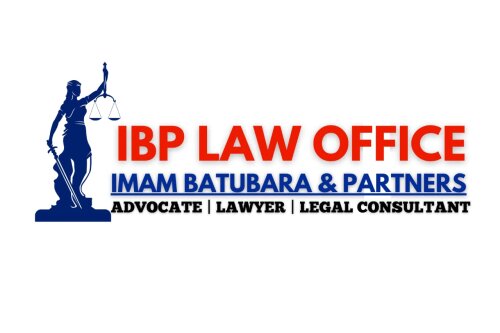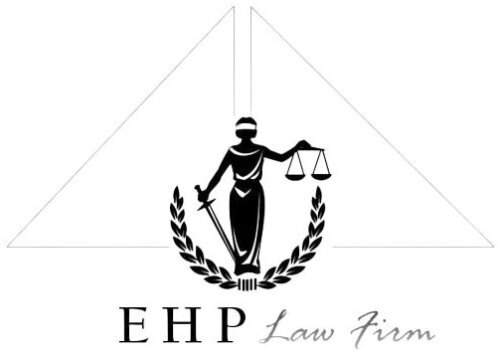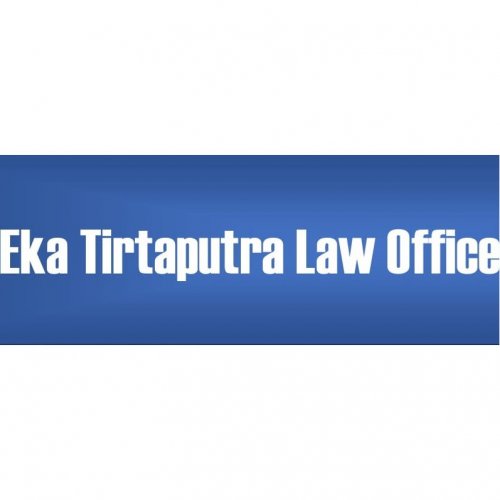Best Appeal Lawyers in Jakarta
Share your needs with us, get contacted by law firms.
Free. Takes 2 min.
List of the best lawyers in Jakarta, Indonesia
About Appeal Law in Jakarta, Indonesia:
Appeal Law in Jakarta, Indonesia falls under the broader jurisprudence of the Indonesian legal system. It chiefly revolves around the process of seeking a review of a court’s decision by a higher court, with the objective of correcting errors and ensuring justice. The possibility of appeal exists in both civil and criminal cases. In Jakarta, the high court handles the majority of appeals, with the Supreme Court representing the highest level of the appellate system.
Why You May Need a Lawyer:
Engaging a lawyer becomes necessary in several cases associated with Appeals. For instance, if you feel that a court's decision was unjust, inadequate, or based on a legal error, you may wish to appeal. A lawyer can help assess the merits of your case, navigate complex legal procedures, prepare necessary documents, and represent you effectively in court. Additionally, given the stringent and often time-sensitive procedures associated with filing an appeal, it is advisable to have a knowledgeable legal professional on your side.
Local Laws Overview:
The legal framework for appeals in Jakarta, Indonesia, is embedded in the Law No. 48 of 2009 on Judicial Power, and the Criminal Procedural Code (KUHAP). According to these, an appeal should be lodged within seven days of a court decision for criminal cases and within 14 days for civil cases. Moreover, the law requires that appeal briefs be written in Indonesian and articulate clear grounds of appeal. Additionally, new evidence can be introduced during the appeal process, provided it was not intentionally withheld during the initial proceedings.
Frequently Asked Questions:
How long does the appeal process typically take in Jakarta?
The duration can vary significantly based on the complexity of the case, the court’s schedule, and other factors. Typically, it could range from a few months to more than a year.
Can I represent myself for an appeal?
In theory, yes. However, due to the complexity of the laws and procedures involved, it is strongly advised to engage a professional lawyer with experience in appeals.
What can I do if I lose an appeal?
If your appeal is unsuccessful at the local high court, you may have the option to take your case to the Indonesian Supreme Court, provided your case fulfills certain criteria.
Can I submit new evidence during the appeal process?
Yes, as long as it was not intentionally concealed during the initial trial.
What is a cassation appeal?
A cassation appeal is a final review by the Supreme Court of Indonesia. It is primarily focused on re-evaluating the legal reasoning used in the previous judgments.
Additional Resources:
The Indonesian Court website, the Indonesian National Police, the Jakarta High Court, and the Indonesian Ministry of Law and Human Rights provide relevant legal documentation, laws, and news related to appeal law. Local libraries and law schools may also offer helpful legal research tools and resources. Various non-profit organizations and legal aid services provide legal help, often free of charge, to those in need.
Next Steps:
If you need legal assistance with an appeal, the first step is to consult with an experienced lawyer. They can provide a detailed understanding of the procedures, requisite documents, and potential challenges in the process. Ensure that your lawyer communicates effectively and is responsive to your needs and queries. It is crucial to act promptly given the time-sensitive nature of appeals. Being proactive will ensure that necessary documentation and processes are handled appropriately and timely.
Lawzana helps you find the best lawyers and law firms in Jakarta through a curated and pre-screened list of qualified legal professionals. Our platform offers rankings and detailed profiles of attorneys and law firms, allowing you to compare based on practice areas, including Appeal, experience, and client feedback.
Each profile includes a description of the firm's areas of practice, client reviews, team members and partners, year of establishment, spoken languages, office locations, contact information, social media presence, and any published articles or resources. Most firms on our platform speak English and are experienced in both local and international legal matters.
Get a quote from top-rated law firms in Jakarta, Indonesia — quickly, securely, and without unnecessary hassle.
Disclaimer:
The information provided on this page is for general informational purposes only and does not constitute legal advice. While we strive to ensure the accuracy and relevance of the content, legal information may change over time, and interpretations of the law can vary. You should always consult with a qualified legal professional for advice specific to your situation.
We disclaim all liability for actions taken or not taken based on the content of this page. If you believe any information is incorrect or outdated, please contact us, and we will review and update it where appropriate.
















